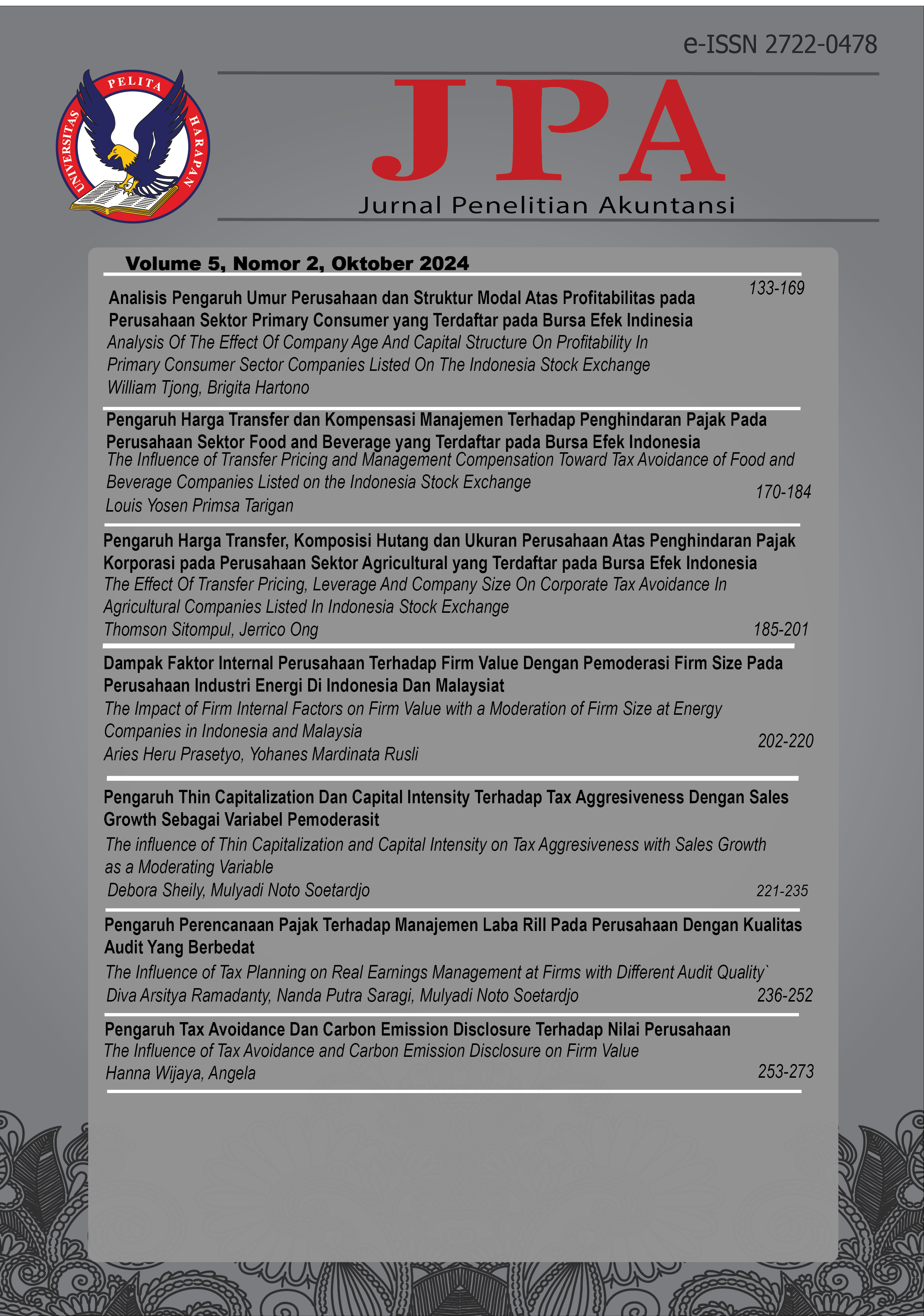PENGARUH PERENCANAAN PAJAK TERHADAP MANAJEMEN LABA RILL PADA PERUSAHAAN DENGAN KUALITAS AUDIT YANG BERBEDA
Abstract
This study aims to test and obtain empirical evidence regarding the effect of tax planning on real earnings management, as well as the effect of audit quality and the Covid -19 pandemic on the relationship between tax planning and real earnings management. The independent variable used in this study is tax planning and the dependent variable used is real earnings management. This study also uses audit quality and the Covid-19 pandemic as moderating variables. The research data is secondary data in the form of financial reports taken through S&P Capital IQ. The research sample used is the financial statements of companies in consumer staples sector listed on the Indonesia Stock Exchange (IDX) during 2018 - 2022, with final sample 316 data from 85 companies. The purposive sampling method was used as a sample collection technique and the data was analyzed using multiple regression methods with IMB SPSS 27 software. The results of this study indicate that tax planning has a negative effect on real earnings management, audit quality weakens the relationship between tax planning and real earnings management, and the Covid-19 pandemic has no effect on the relationship between tax planning and real earnings management. The implication of this research is to increase knowledge about the effect of tax planning on real earnings management and the effect of audit quality on the relationship between them.
Downloads
Published
Issue
Section
License
Copyright (c) 2024 Diva Arsitya Ramadanty, Nanda Putra Saragi; Mulyadi Noto Soetardjo

This work is licensed under a Creative Commons Attribution-ShareAlike 4.0 International License.
Authors who publish with this journal agree to the following terms:
1) Authors retain copyright and grant the journal right of first publication with the work simultaneously licensed under a Creative Commons Attribution License (CC-BY-SA 4.0) that allows others to share the work with an acknowledgement of the work's authorship and initial publication in this journal.
2) Authors are able to enter into separate, additional contractual arrangements for the non-exclusive distribution of the journal's published version of the work (e.g., post it to an institutional repository or publish it in a book), with an acknowledgement of its initial publication in this journal.
3) Authors are permitted and encouraged to post their work online (e.g., in institutional repositories or on their website). The final published PDF should be used and bibliographic details that credit the publication in this journal should be included.


